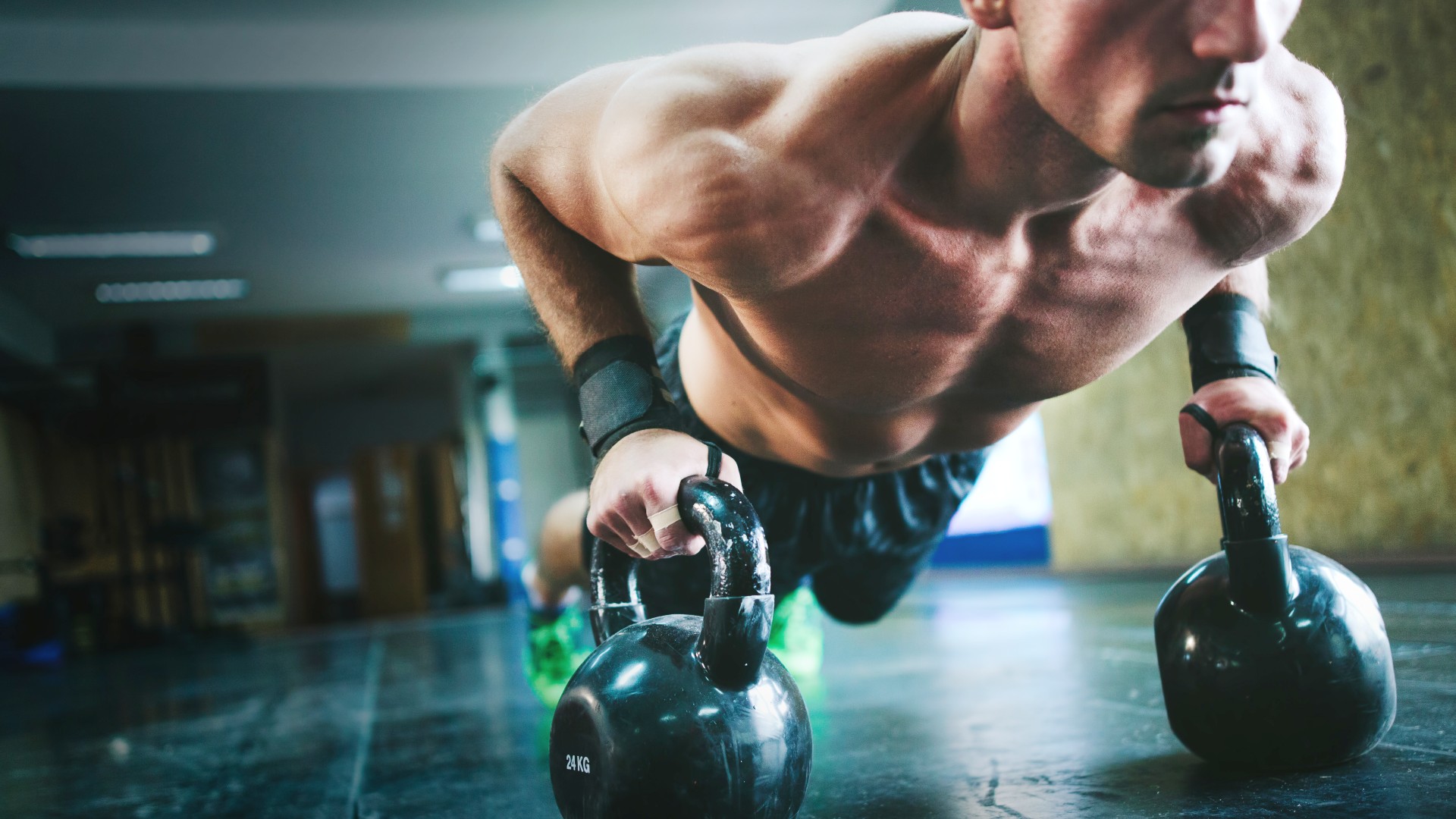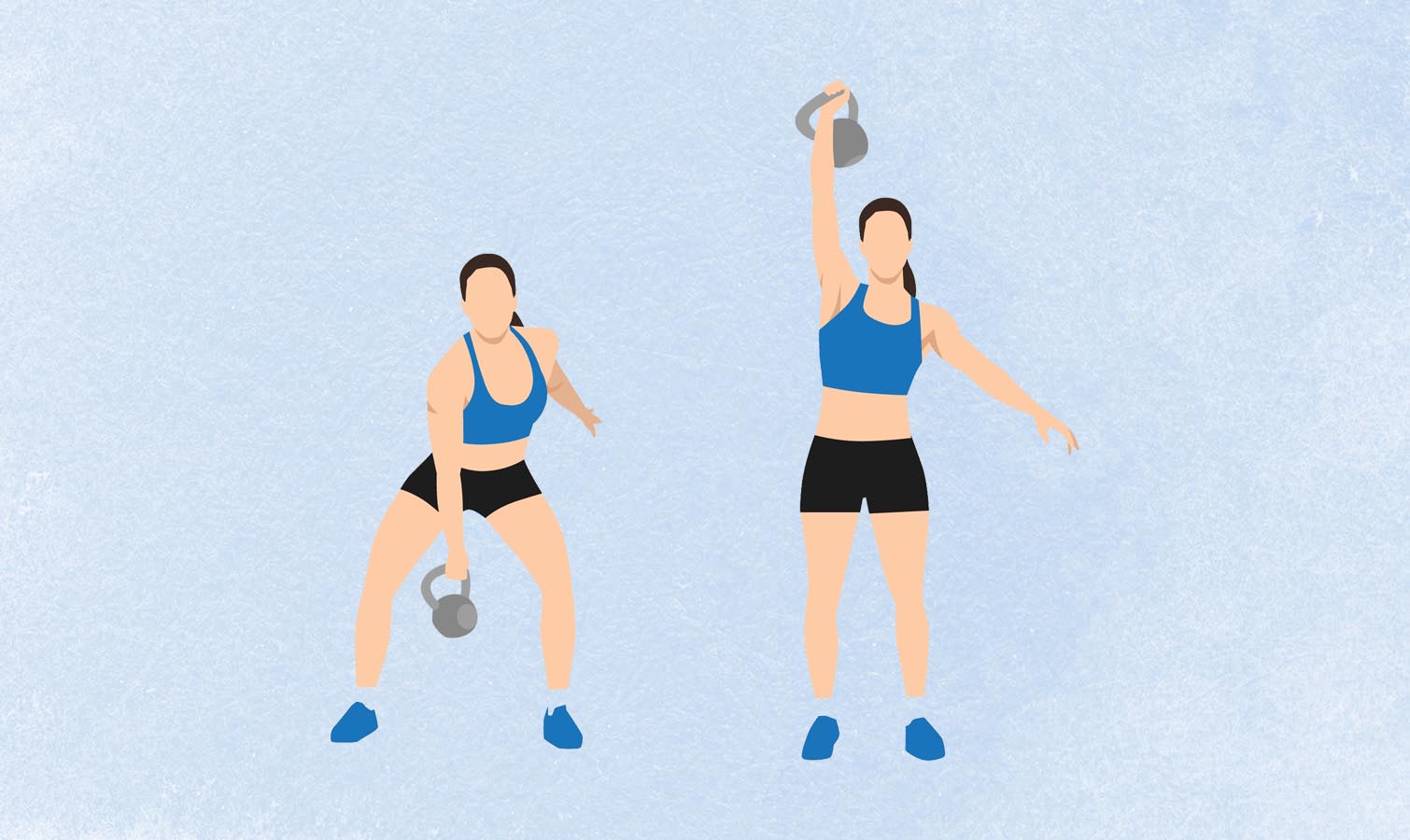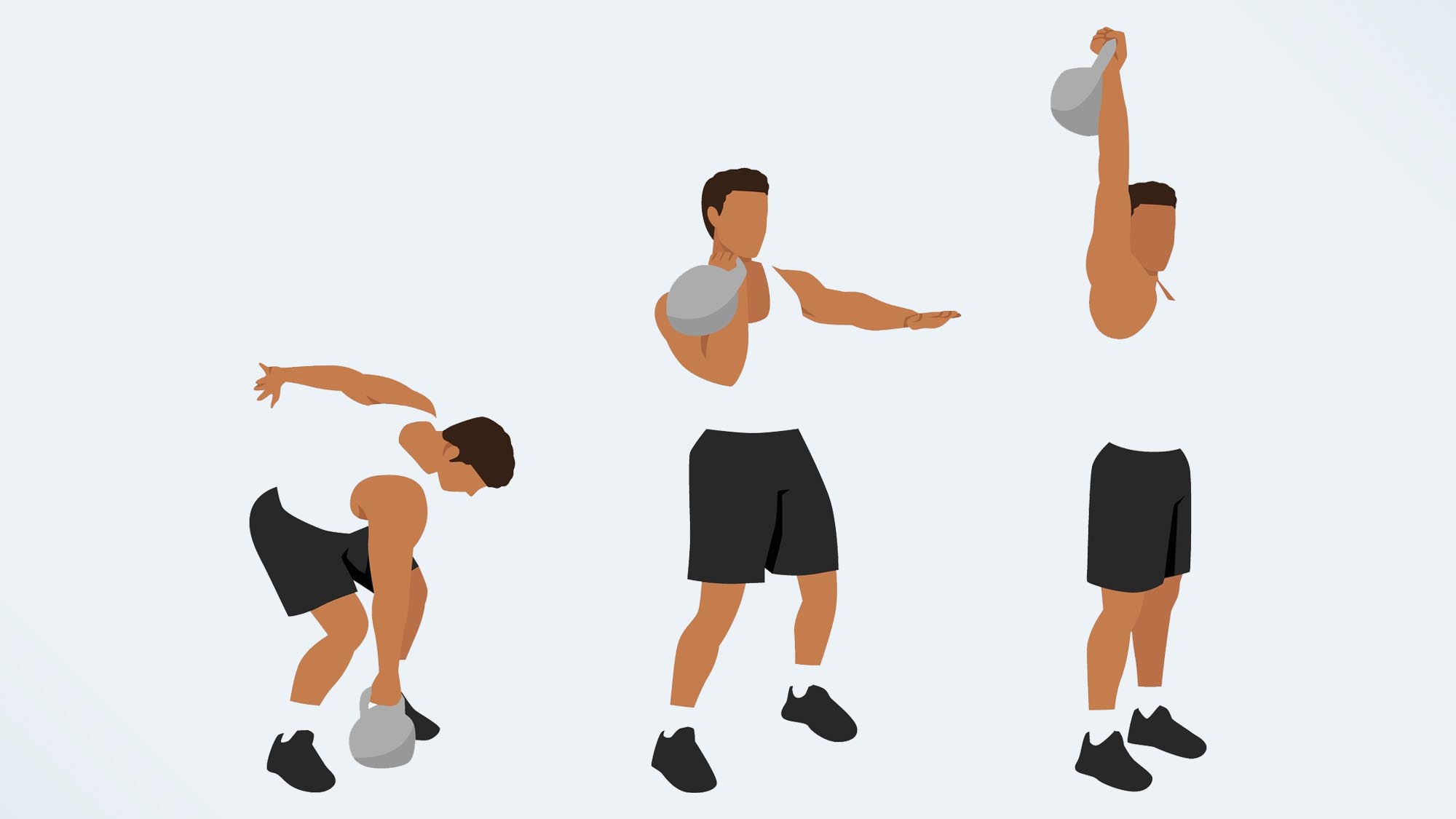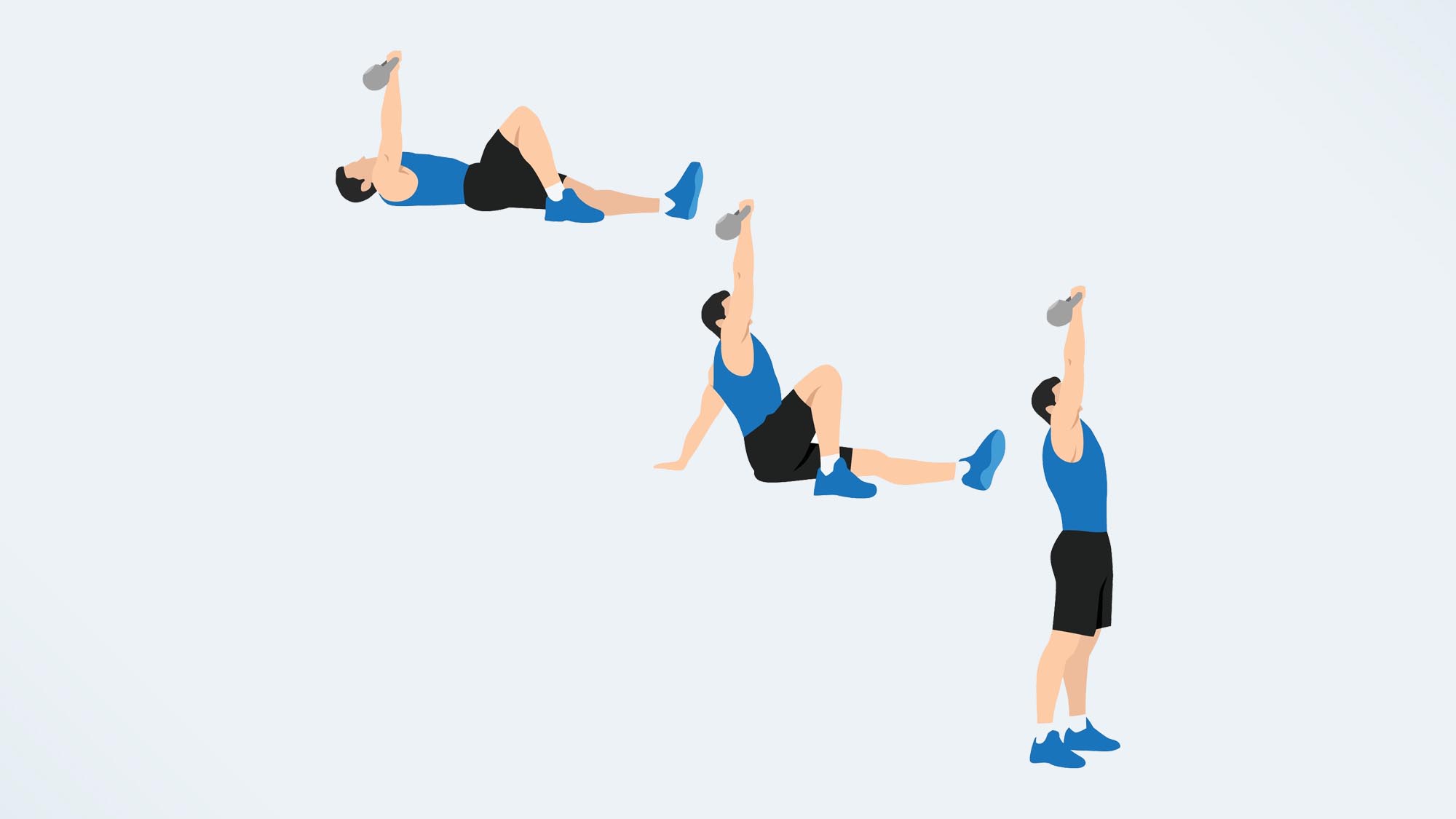
Armed with one of the best kettlebells for weightlifting, the world could be your oyster when learning kettlebell exercises for beginners. But what moves should you focus your attention on?
At Tom’s Guide, we strongly advocate kettlebell training for beginners who want to work with free weights. The research tells us that kettlebells kick butt when it comes to your fitness and could help build functional strength and lean muscle mass, develop power, balance and coordination and improve core stability — to name just a few benefits. But tapping into foundational exercises first will help build a solid footing.
We’ve put together five of our favorite kettlebell exercises for beginners that target most muscle groups and deliver a muscle-torching full-body workout. Regardless of your fitness ability or experience with kettlebells, all beginners can benefit from learning them. Here they are.
What weight kettlebell should a beginner start with?
There are many things I wish I'd known before lifting heavy weights, and being patient is one of them. We strongly recommend taking the time to learn how to hold a kettlebell properly before you begin training with them because there are a few grips worth knowing for certain types of exercises. Good grip will also help you lift heavier.
Your experience with weightlifting will determine whether you start with entry-level weights or something heavier. As a guideline only, we recommend men start with 35-45 lbs (16-20 kg) and women 18-26 lbs (8-12 kg). If you have experience, you could try 53-70 lbs (24-32 kg) for men and 35-53 lbs (16-24 kg) for women. In the world of weightlifting, there are men’s and women’s guidelines, but that doesn’t mean you can’t lift what’s right for you.
5 best kettlebell exercises for beginners
1. Kettlebell slingshots

Also known as kettlebell Around The Worlds, slingshots work your core, arms and shoulders and build upper body strength, hand grip and torso stability, but there’s another great reason to add them to the vault if you’re looking for kettlebell exercises for beginners.
To do the move, pass the kettlebell around your body while exchanging from hand to hand at the front without swinging your hips or arching your back. Doing so will help you adjust to the weight distribution of the kettlebell and can be used as a strength exercise or as a warm-up before kettlebell training. It’ll also help you improve your grip transitioning as you shift the weight from hand to hand.
Sign up to get the BEST of Tom's Guide direct to your inbox.
Get instant access to breaking news, the hottest reviews, great deals and helpful tips.
2. Kettlebell snatches

Snatches are a fundamental part of kettlebell training, cropping up in competition, CrossFit workouts and kettlebell classes everywhere. The full-body exercise takes some technique, but once you’ve honed the skill, your entire body will benefit.
Start with the kettlebell on the floor between your feet, which should be roughly hip-width apart. Push your hips back and keep your back flat, then grip the kettlebell handle with the left hand. Swing the kettlebell behind you between your legs, and as you lift your hips, straighten the knees, shrug the left shoulder and swing the kettlebell upwards, driving your arm up overhead.
Keep your stomach braced and flip the kettlebell over your hand as you punch overhead, resting it on the back of your hand. Lock the left arm out before flipping the kettlebell back to the front and lowering the arm back down. Avoid smacking the weight onto your hand or wrists, moving with a weight you can fully control. Remember to switch sides.
Here’s what happened when our writer did 100 kettlebell snatches every day for a week.
3. Kettlebell clean

The kettlebell clean should be a staple exercise learned during kettlebell training. It's a great standalone exercise but is also a transitional move for other strength exercises like an overhead press (see above) or front rack squat. You’ll lift the kettlebell from the ground to a front rack position to engage the upper back and arms.
Stand feet shoulder-width apart with one kettlebell between your feet, then grip the handle off-center using an overhand grip. Your back should be flat, your stomach braced, and your chest lifted. Swing the kettlebell back slightly and pull it upward close to your midline, then turn your arm under the bell to rest it in a racked position with your elbow close to your ribcage. Again, avoid hitting the kettlebell against your arm or wrist. Reverse the steps down and repeat on the other side.
4. Kettlebell Turkish get-up

The get-up involves moving from lying to standing while holding a weight overhead. It’s typically programmed during ab workouts, but it’s far more technically challenging than meets the eye and requires full-body muscular control, stability and engagement.
Start lying down, gripping your kettlebell in your right hand using an underhand grip. Engage your core, then raise your right arm overhead in line with your shoulder. Bend your right knee and plant your right foot onto the ground, then extend your left leg away and keep your left arm relaxed on the ground. Sit up and rest your left elbow on the ground close to your body while still punching the weight overhead. Lift your chest again, placing your left hand on the ground, arm straight.
Push through your right heel and lift your hips, then sweep your left leg behind you into a half-kneeling position and lift your left arm to straighten your upper body. Push through your front foot to stand and bring your left leg to meet your right. Step your left leg into a reverse lunge, then reverse the steps back to the floor. Switch sides.
Here's what happened when I did 70 Turkish get-ups every day for one week.
5. Kettlebell squat clean
The squat clean is a fundamental powerlifting exercise that uses a slightly different grip technique than the clean technique above. The move targets your legs, glutes, core, hip flexors, arms, shoulders and the upper traps in your back, and combines the beginnings of a kettlebell deadlift to an upright row, catching the weight and performing a squat.
Start with your feet shoulder-width apart and the kettlebell positioned between them. Engage your stomach muscles, flatten your back and lift your chest, then bend down and grip the kettlebell overhand using both hands. Pull your shoulders back and squeeze your lats to tighten your upper body position.
Drive the kettlebell upward while keeping it close to your midline, then shoot your hands down to the sides of the handles to switch your grip. Draw your elbows down, bell at chest height, and perform a squat. As you stand, flip your grip again overhand, then lower the weight to its starting position on the ground.
More from Tom's Guide

Sam Hopes is a level 3 qualified trainer, level 2 reiki practitioner and senior fitness writer at Tom's Guide. She is also currently undertaking her Yoga For Athletes training course. Sam has written for various fitness brands and websites over the years and has experience across brands at Future such as Live Science, Fit&Well, Coach, and T3.
Having worked with fitness studios like F45 and Virgin Active, Sam now primarily teaches outdoor bootcamps, bodyweight, calisthenics and kettlebells. She also coaches mobility and stretching-focused classes several times a week and believes that true strength comes from a holistic approach to training your body.
Sam has completed two mixed doubles Hyrox competitions in London and the Netherlands and finished her first doubles attempt in 1:11.

